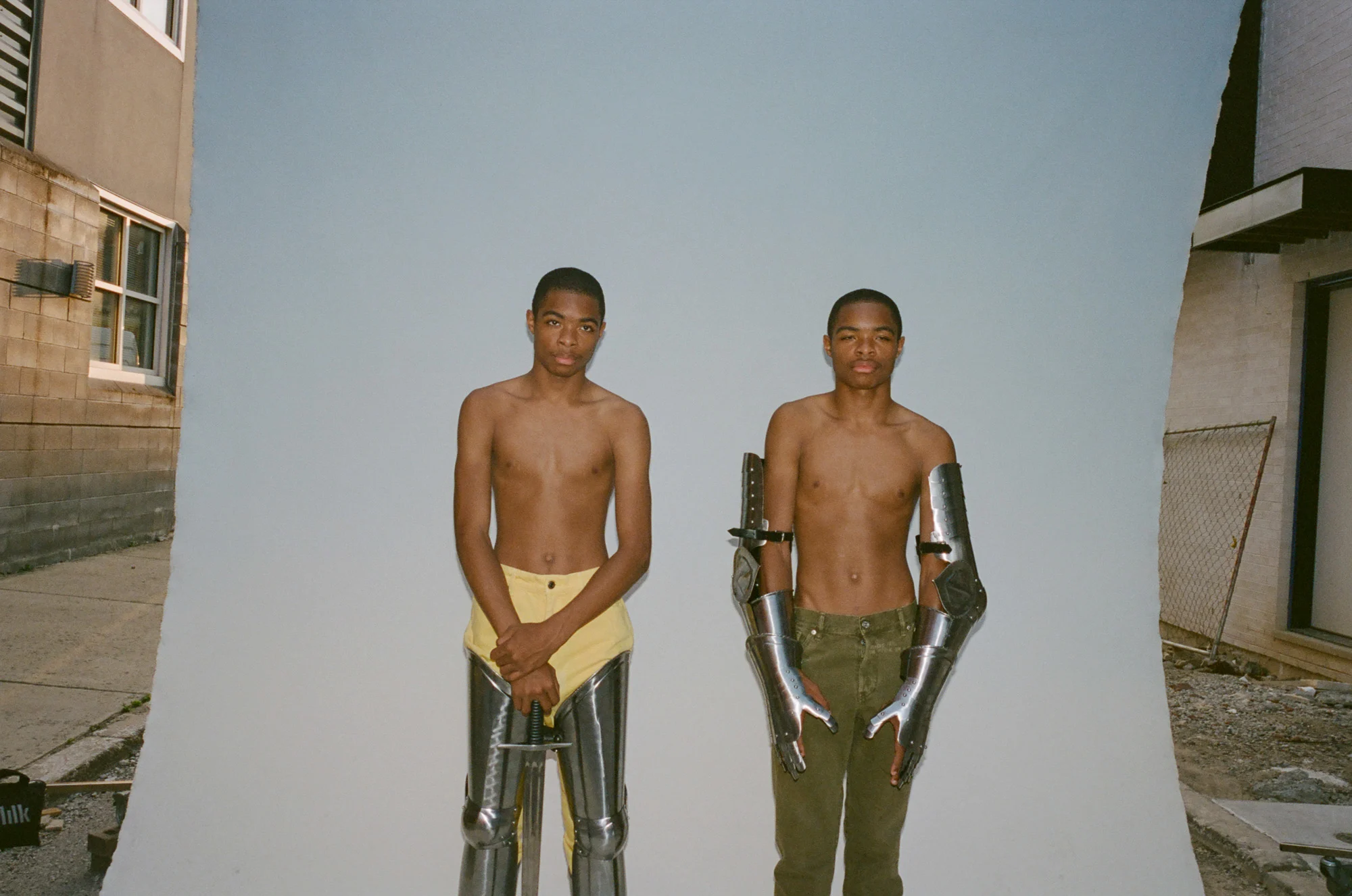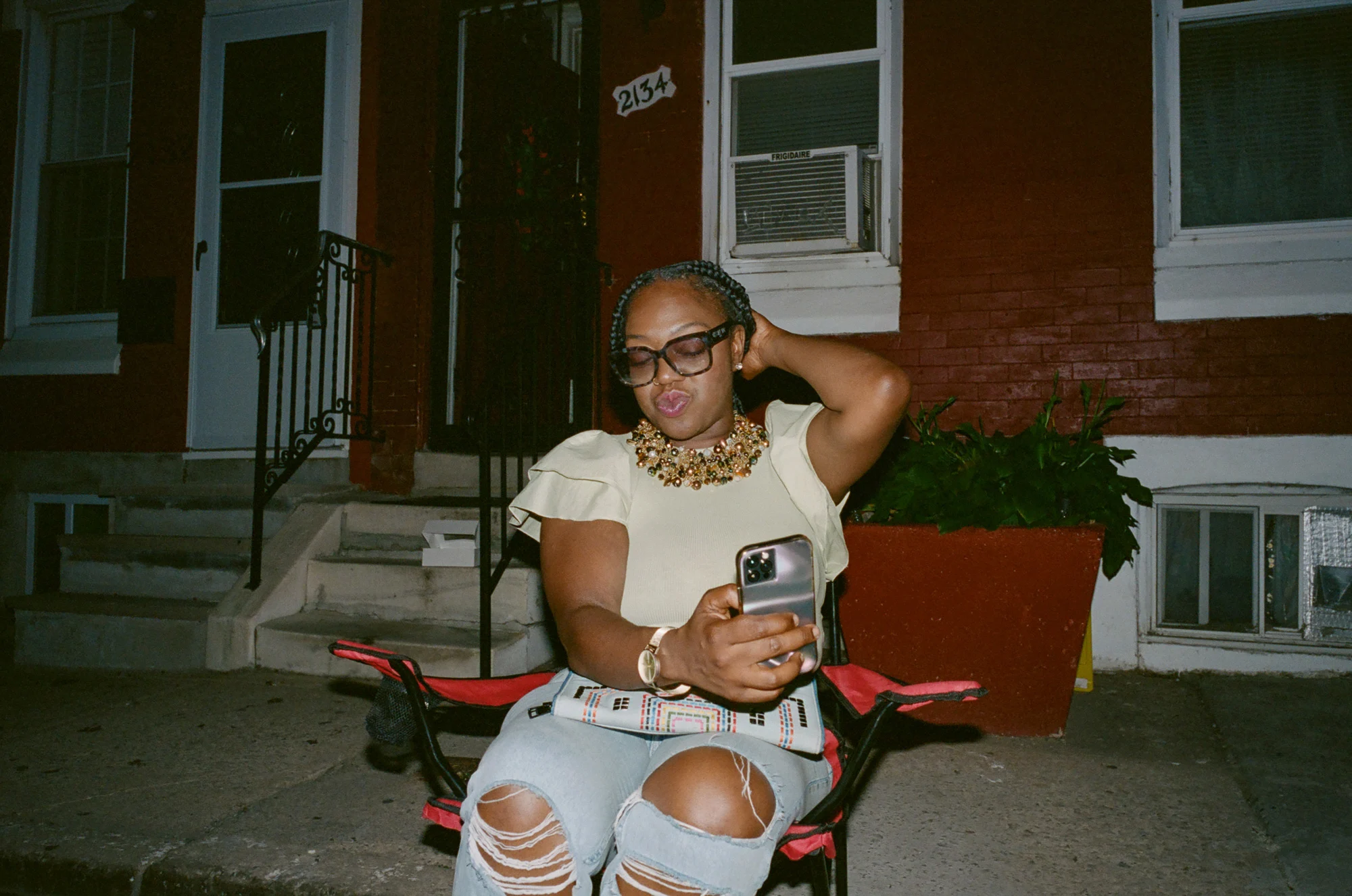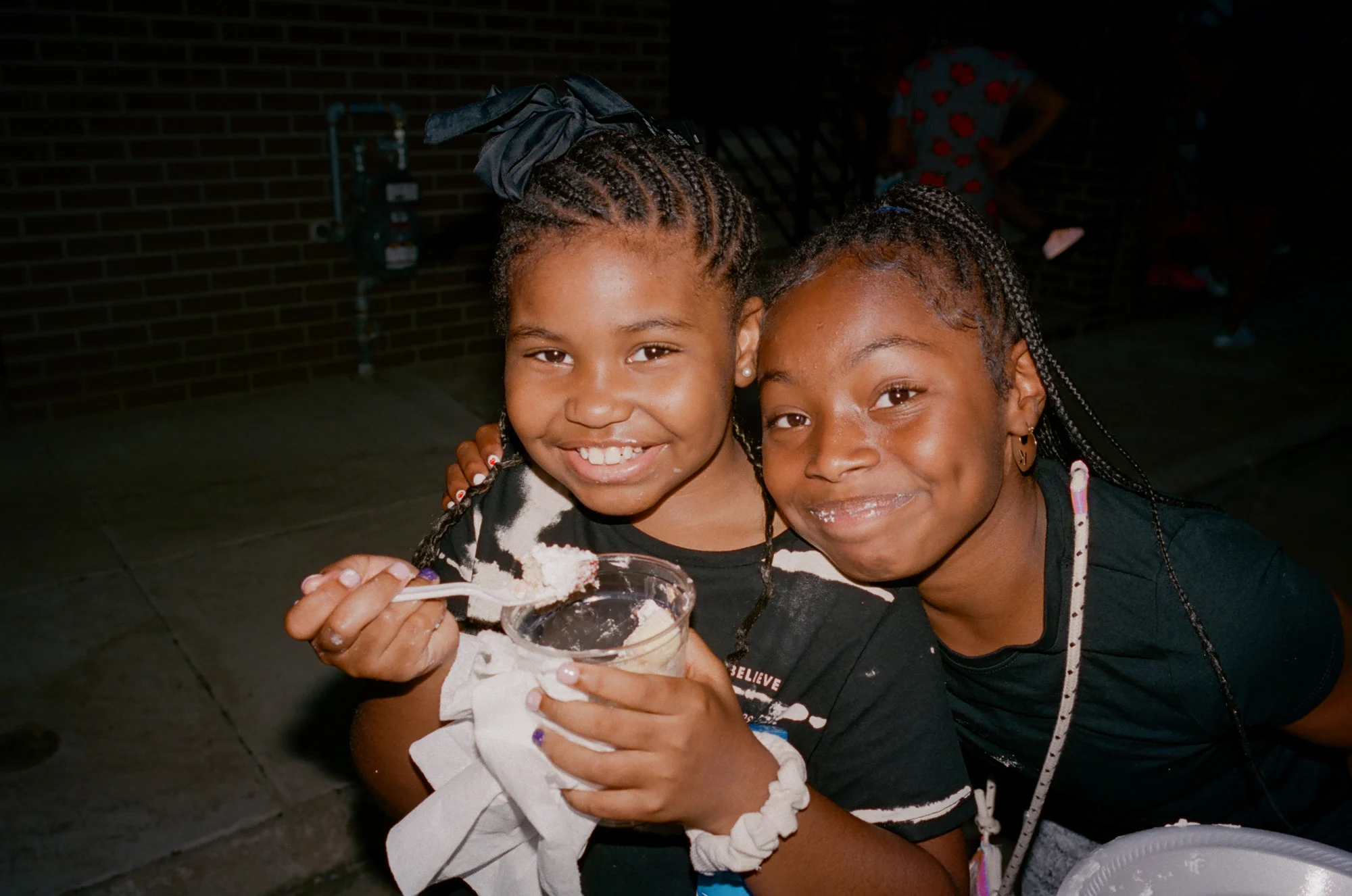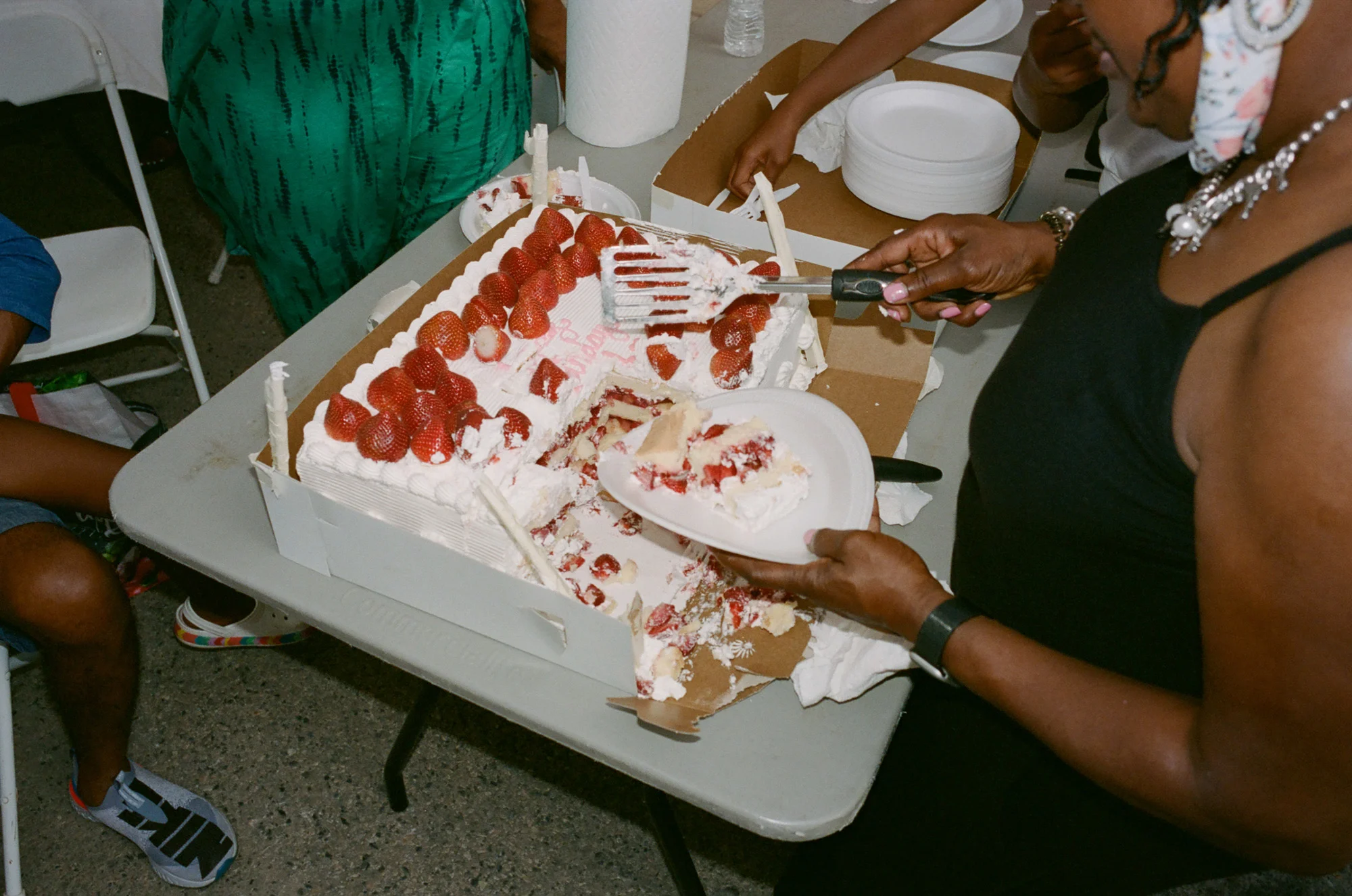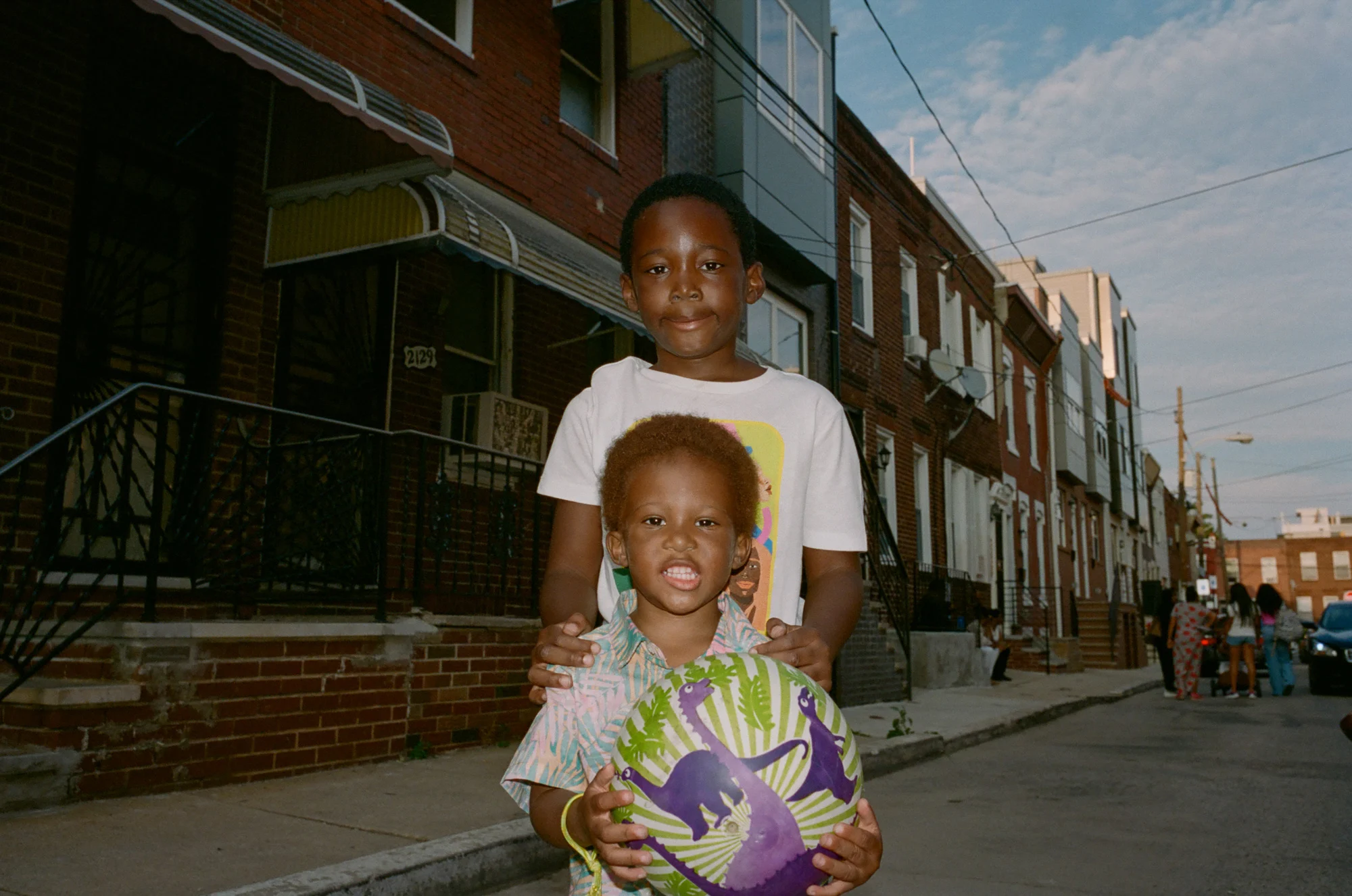
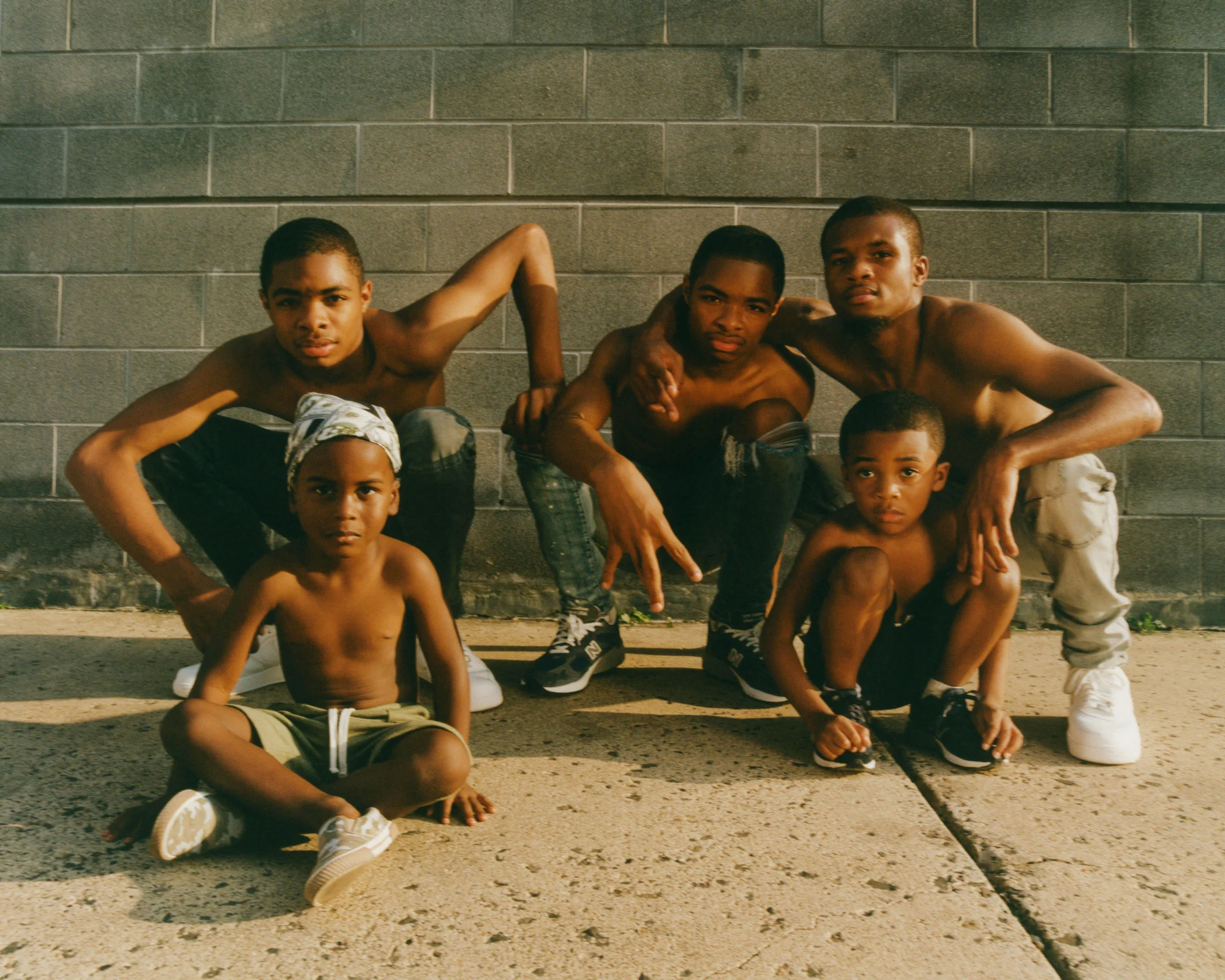
In time for his grandmother’s 67th birthday, photographer Quil Lemons partnered with WePresent to create 6 7, a photo series documenting a family block party in his hometown of Philadelphia. The photographs encourage people to think of their own families, while also considering what it means to be a Black American. Writer Sajae Elder meets Lemons to talk about how the project came about and what the shoot means to him personally.
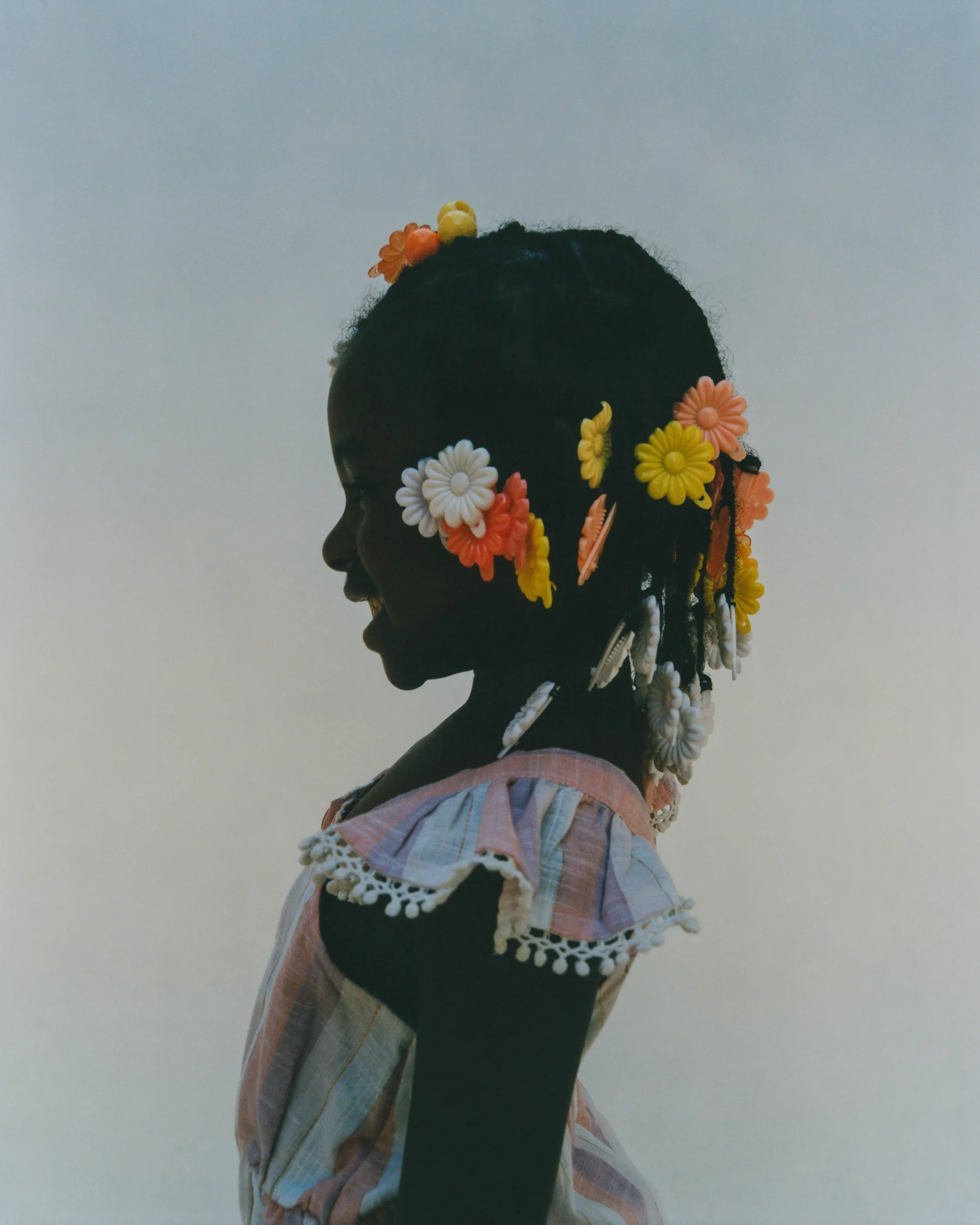
For Quil Lemons, a Philadelphia block party celebrating his grandmother’s 67th birthday provided the perfect place to analyze the breadth of Black love—beginning, of course, with his own family. The photographer—the youngest to shoot a cover for Vanity Fair—wanted to shift his lens onto his own community, capturing the essence of what it means to be Black in America, and the changing landscape of a nation in flux.
“There was this idea of joy, and also this idea of resilience when there’s pain and struggle," Lemons explains to me via Zoom. There can be beauty in struggling, and also just the beauty of being a Black person in America. You’re always figuring out ways to be yourself when the whole world is telling you something else.”
There can be beauty in struggling, and also just the beauty of being a Black person in America. You’re always figuring out ways to be yourself when the whole world is telling you something else.
The pandemic gave Lemons the necessary nudge to return home to Philly. “I always go back home, and I think that’s the one place I really do feel grounded and connected to on a very deep spiritual level,” he says. “I was able to capture the true essence of what it means to be a South Philadelphian. This is the furthest and the deepest I’ve ever gone.”
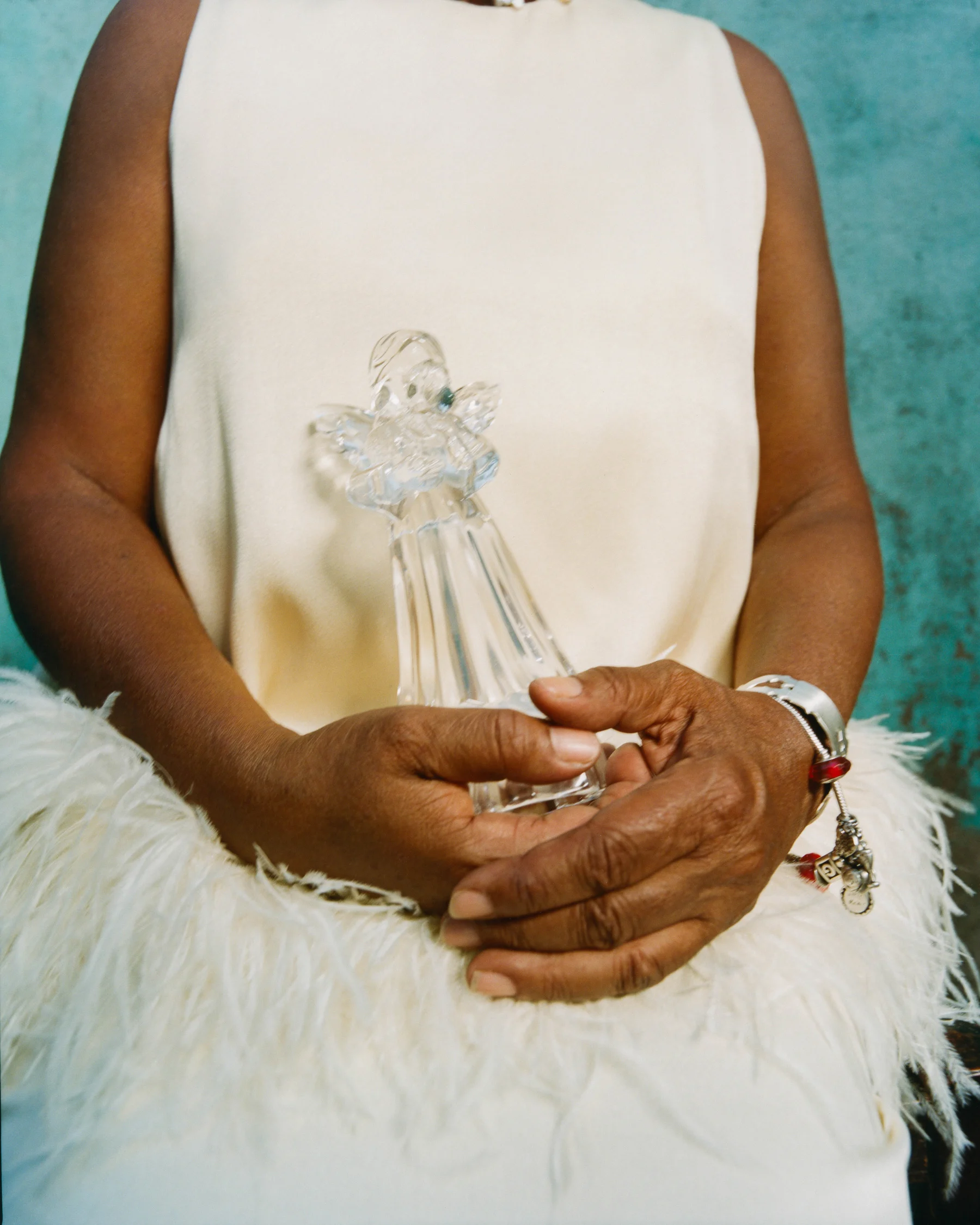
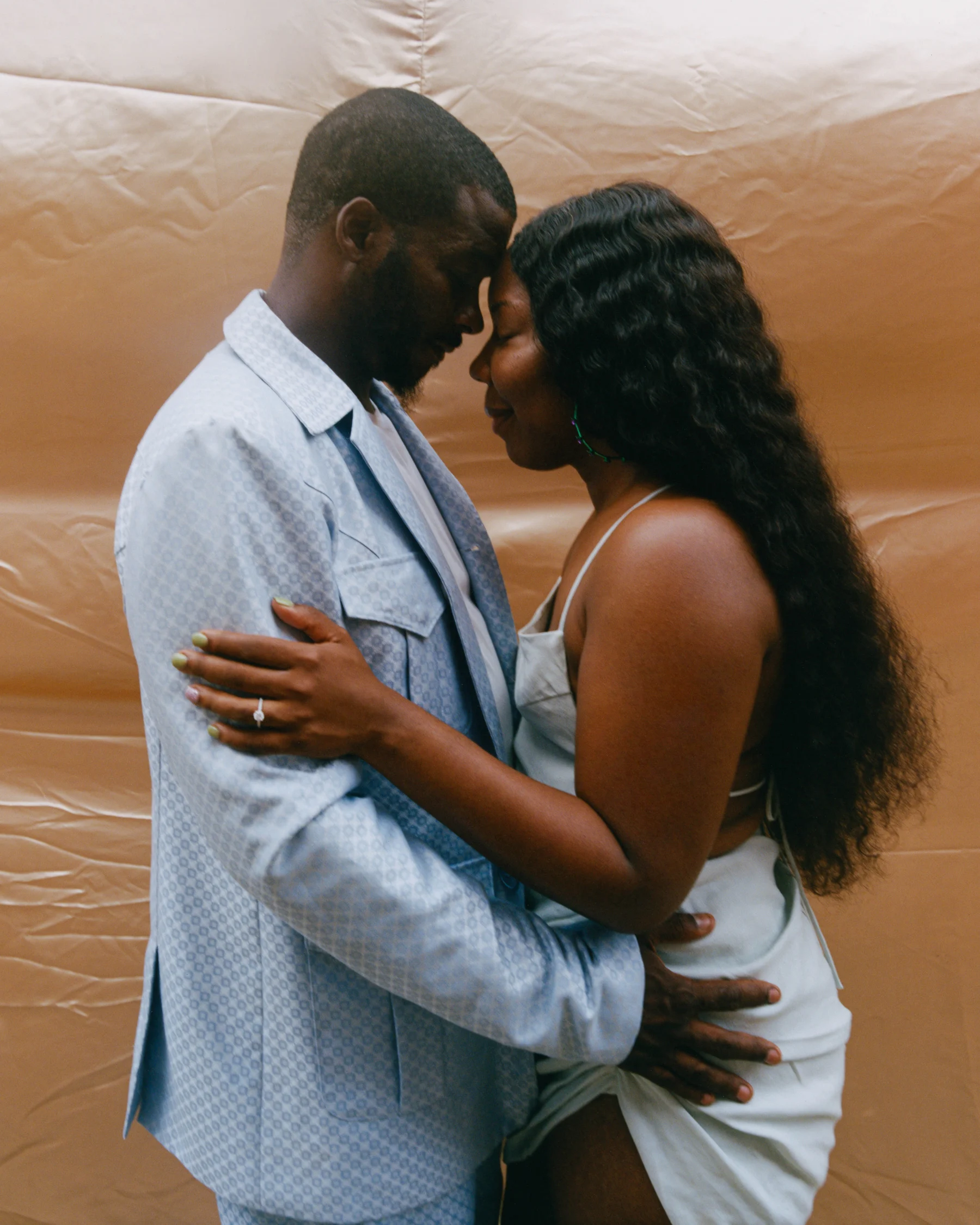
Like any celebration, music was an important puzzle piece in bringing it all together. In a city famed for its contributions to soul and hip-hop, it wasn’t lost on Lemons just how much Philly’s sonic backdrop was an unintentional testament to its shifting landscape. Lemons tells me that Freeway’s Flipside was playing on the day of the shoot, because for him it’s a Philadelphia anthem.
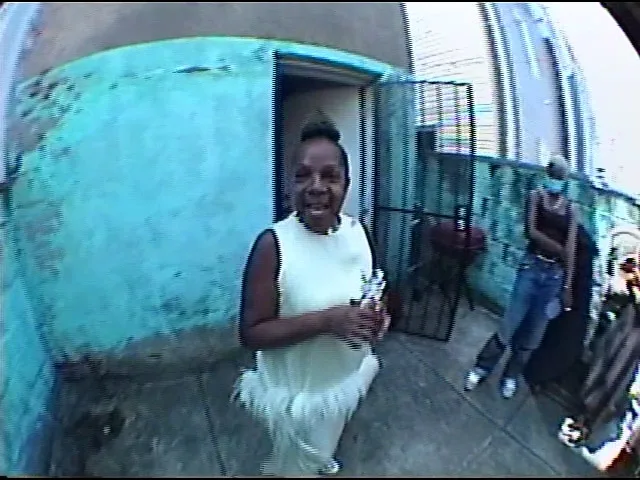
While the day was a jam-packed celebration, it also served as catharsis. Having experienced the deaths of some of his family members in the past year, as well the recent release of his previously-incarcerated father, the series was just as much a commentary on loss. “As a Black person, we’re constantly grieving, but these are the first losses that I was actually conscious of and was like, ‘Damn, this person is no longer here. How do we remember them?’”
Lemons’ desire to interrogate these homage played out in more ways than one. “My dad’s in the series, and the day I shot him was the first day I saw him since he was in jail, so he was extremely nervous to be a part of this series because he didn’t want it to negatively impact my work,” Lemons says. “I was like, ‘I don’t think that that would ever impact my work negatively.’ It goes back to this idea of struggling, but also supporting each other through all of that.”
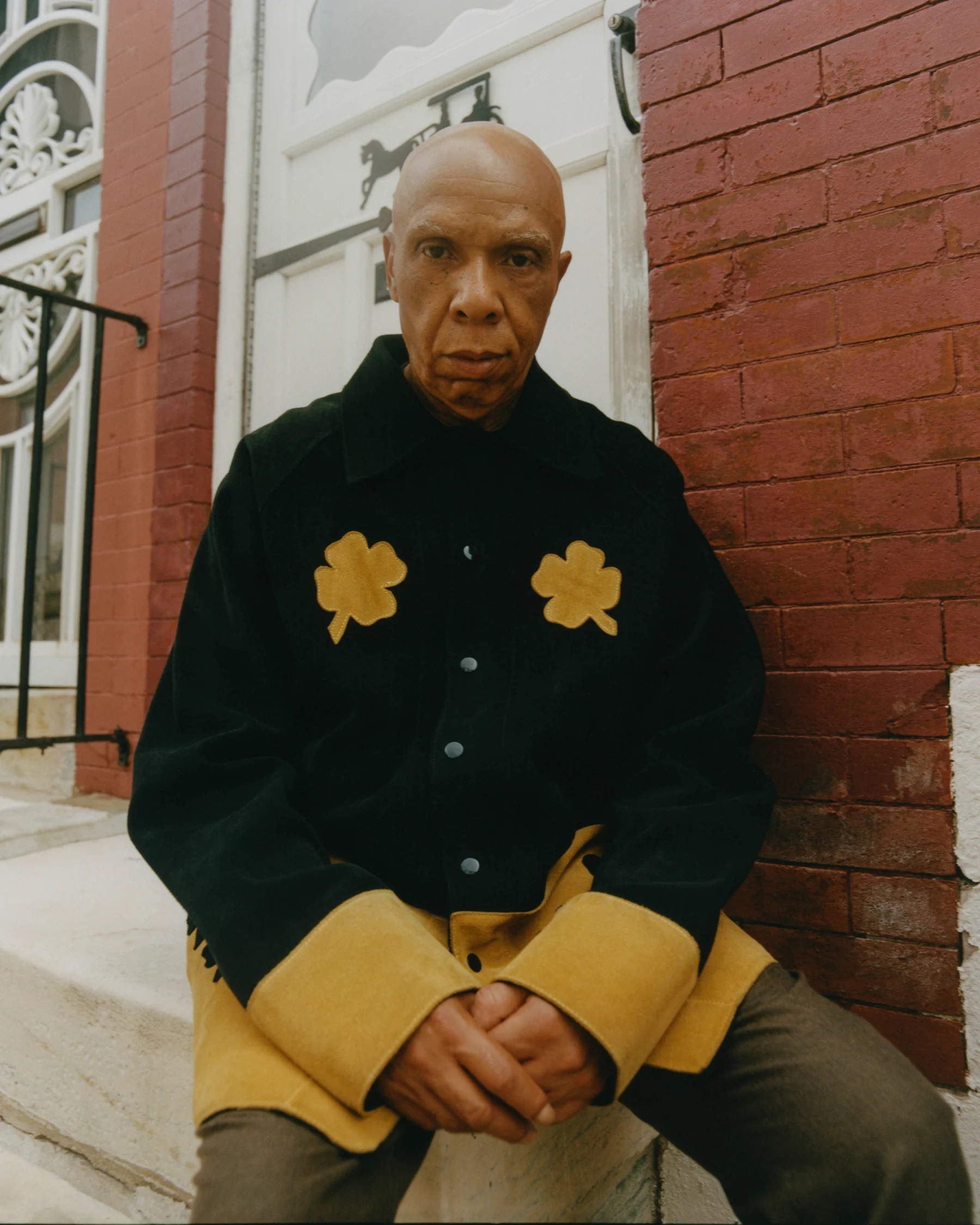
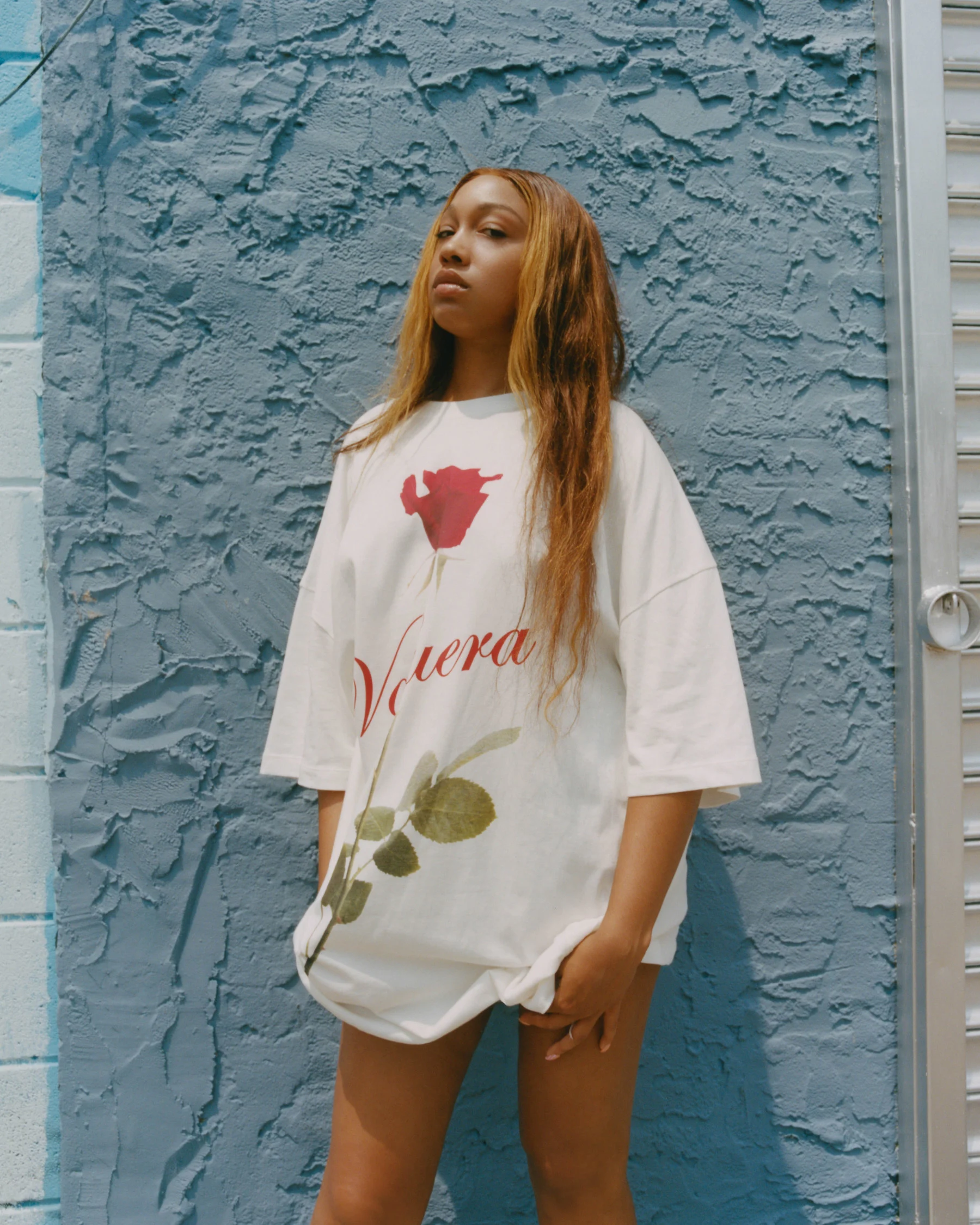
That was such a big thing for me, just showing so many iterations of what it means to be Black and beautiful.
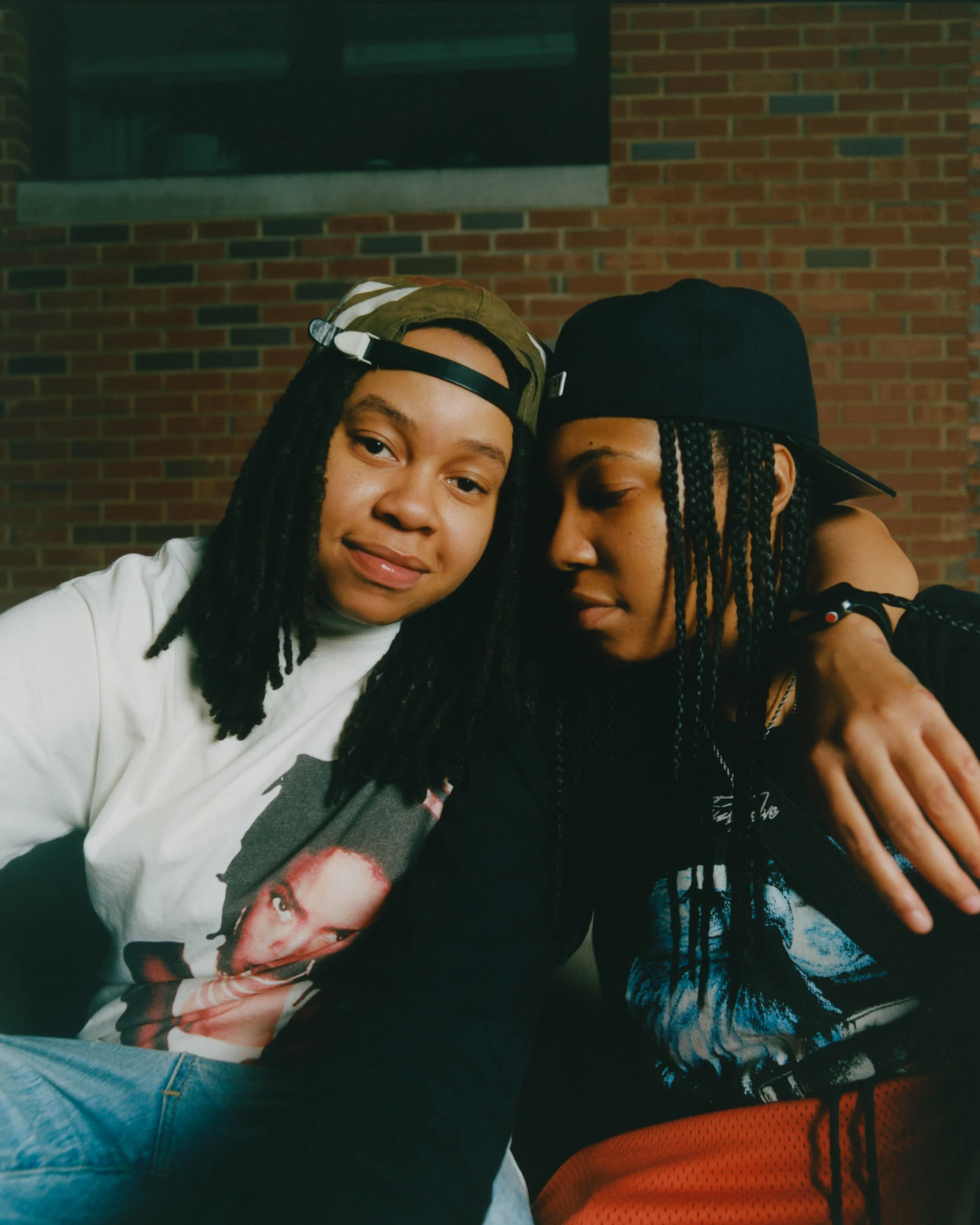
Using his own family as subjects offered Lemons a particular type of intimacy on film, a medium Lemons preferred for its “tactile element,” being able to craft portraits that could outwardly convey that closeness. Despite the large celebration taking place in the background, many of the shots focused on small numbers of people at a time, an intentional choice to highlight the day’s small, fleeting moments. “I was really interested in intimacy with this, because I longed for a closeness with these people and I feel like this is the first time in my life that I actually felt that,” Lemons says. “With your family members, you kind of look at them and idolize them, but this is the first time I was actually seen as an adult."
With that autonomy came imagery and prop choices that Lemons didn’t necessarily plan for but that worked in the moment. Alongside a few added touches and accessories of his own, most of his family members came self-styled. “My family’s very photogenic, I’m aware,” he says with a laugh. “I have so many interpretations of what beauty is because my family don’t all look the same. So, that was such a big thing for me, just showing so many iterations of what it means to be Black and beautiful.”
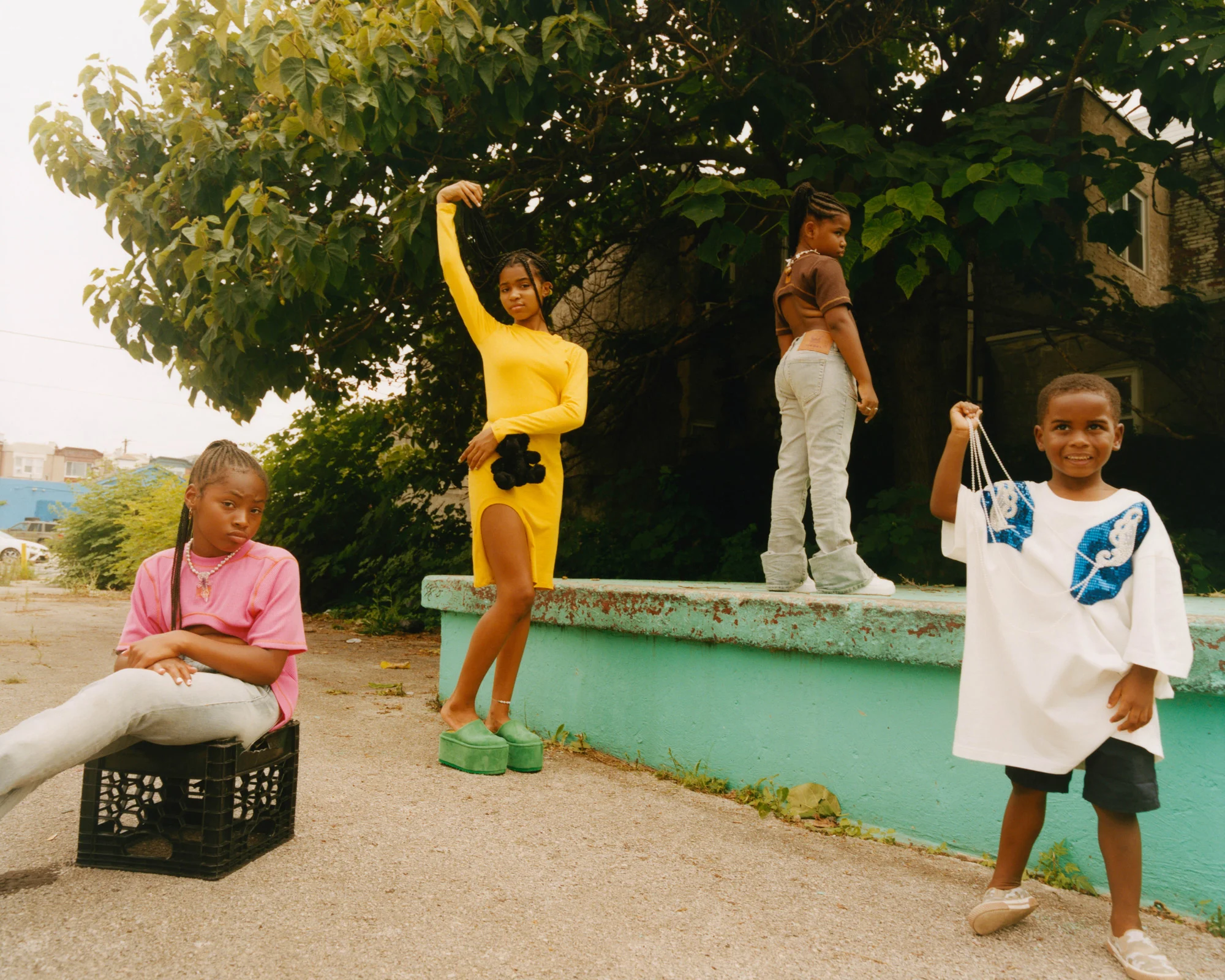
Like most cities in North America, the Philadelphia Lemons grew up in continues to rapidly change. Lemons himself noted that next to the flock of buildings his own family lives in there are newer buildings priced for upwardly-mobile millennials, who don’t interact with their neighborhood in the same ways his family does. Where these communities tended to be tight-knit, new arrivals now float in and out without ever really integrating with their surroundings or neighbors. Of course, these communities often adapt for the comfort of newer residents at the expense of ones who have been there for decades. Funeral homes and local eateries are immortalized in select sepia-toned photos in the series, foreshadowing how they, too, may become relics in their own stomping grounds. “That pizzeria is literally our neighborhood pizzeria, and since the last time I was home, the main market for maybe 20 blocks was bought out, and so the neighborhood is a food desert now,” Lemons explains. “So, it’s like, what do you do with these spaces?”
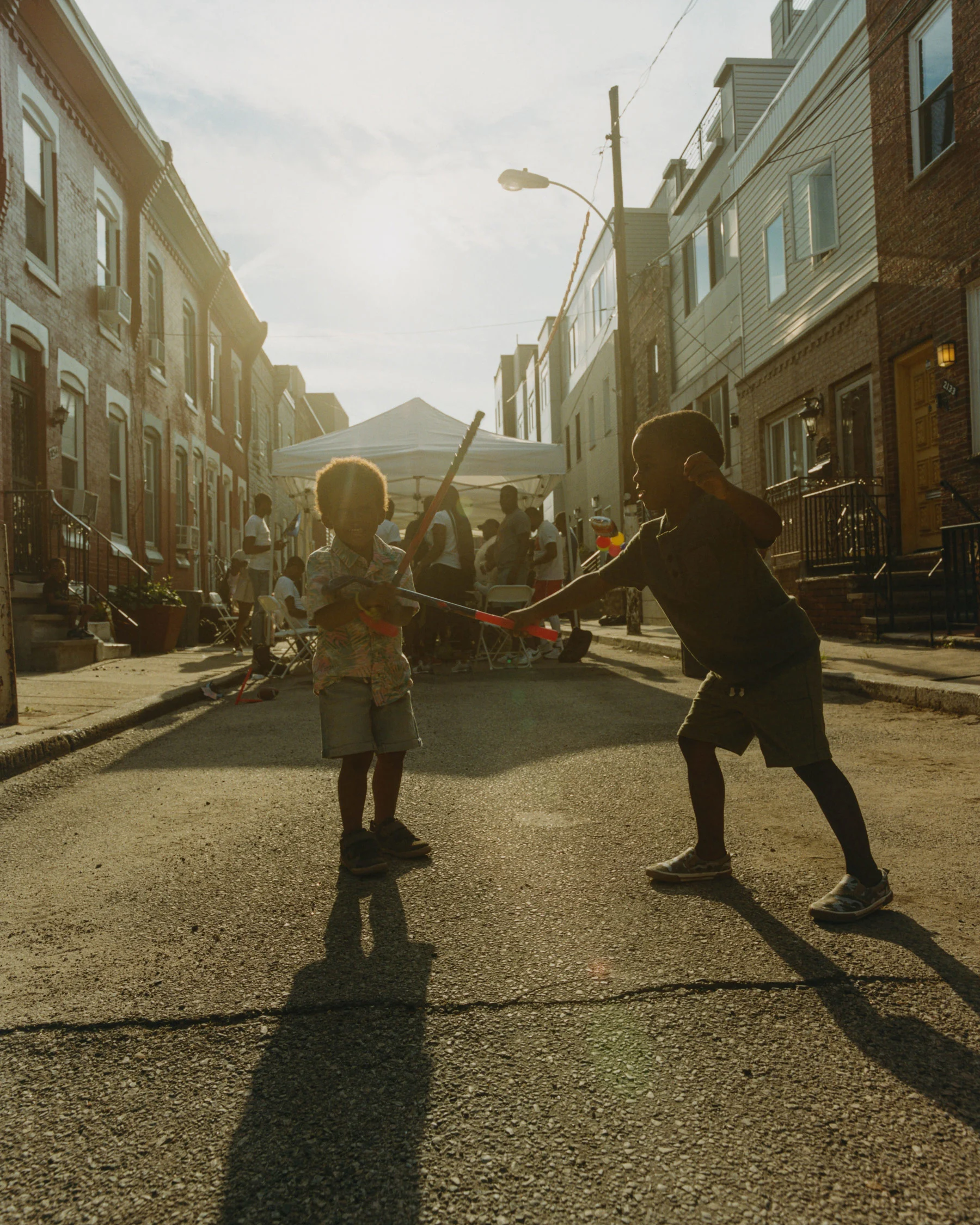
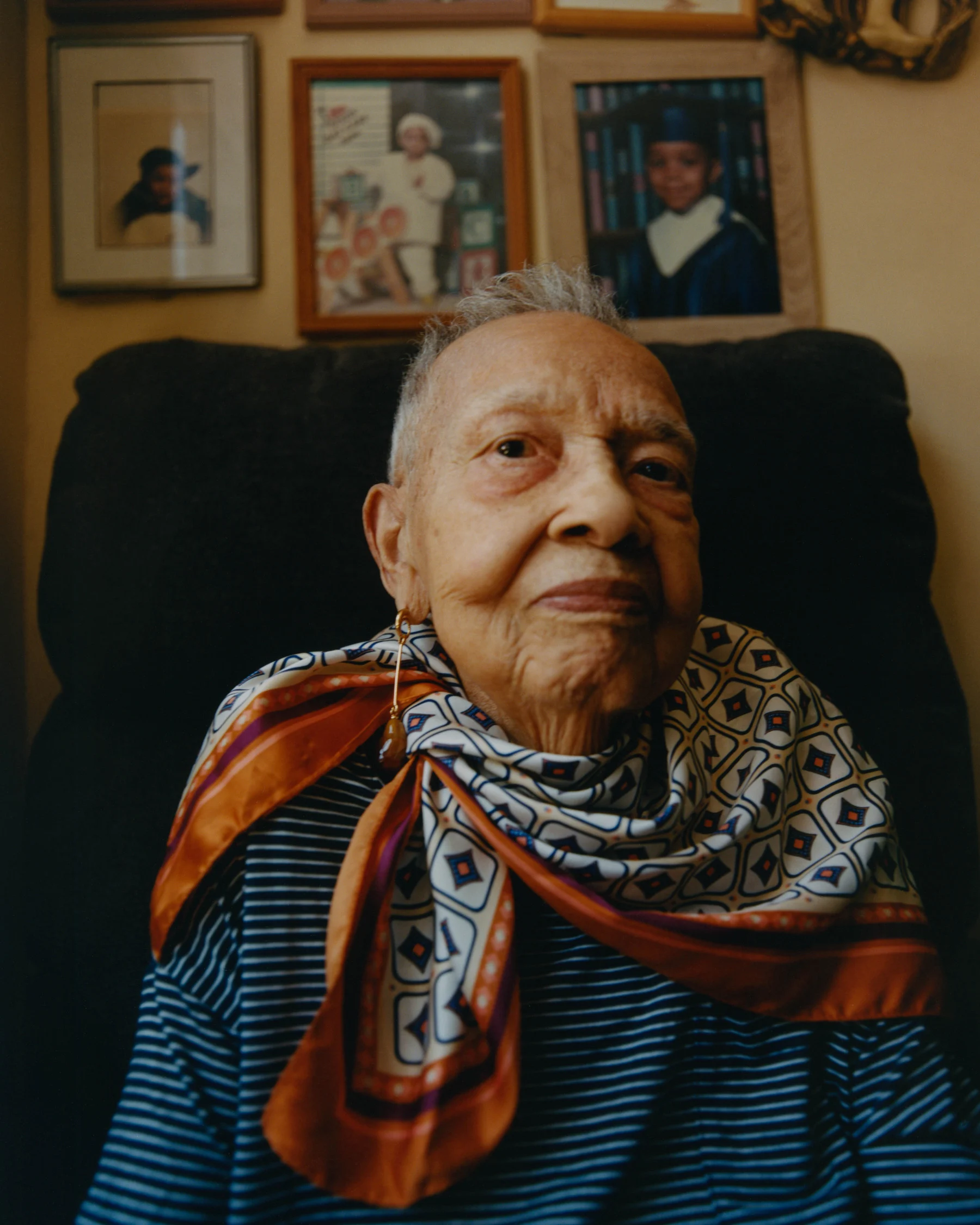
Ultimately, Lemons aims for the series to serve a purpose beyond himself. “It’s set in Philly and it’s my family, but I think when people look at it they see their own family and themselves,” he says. “I think what has been needed for so long for Black people across the diaspora is to be able to walk into museum spaces and see something that’s familiar. I needed people to really sit and think about what it means to be a Black American. What does that look like? I think that for so long, we’ve been told that we had to go into these spaces and adhere to respectability politics that don’t really cater to us at all, or cater to feeling emotionally well. So, the humanization of the Black body, that’s really what I’m aiming for.”
Credits
Photographer – Quil Lemons
BTS footage – Matt Yoscary
Photography Assistants – Alexander Nguyen and Matt Yoscary
Set Design – Dan Horowitz
Stylist – Mel Reneé Leamon
Stylist Assistant – Cyrenae Tademy
Production – Emma Brinkman and Danielle Abramovich
Catering – Chef Allen Young
Thank you to
Jade Lee, Brian Bradley, Brie Bradley, Zuri Bradley, Brian "Bugs" Bradley Jr, Nasir Lemons, Naleek Lemons, Khalil Lemons, Gail Lee, Alma May Hudson, Beverly Bradley, Khalilah Felder, Ervin Lemons, Khalif Thompson and Maryum Lee


